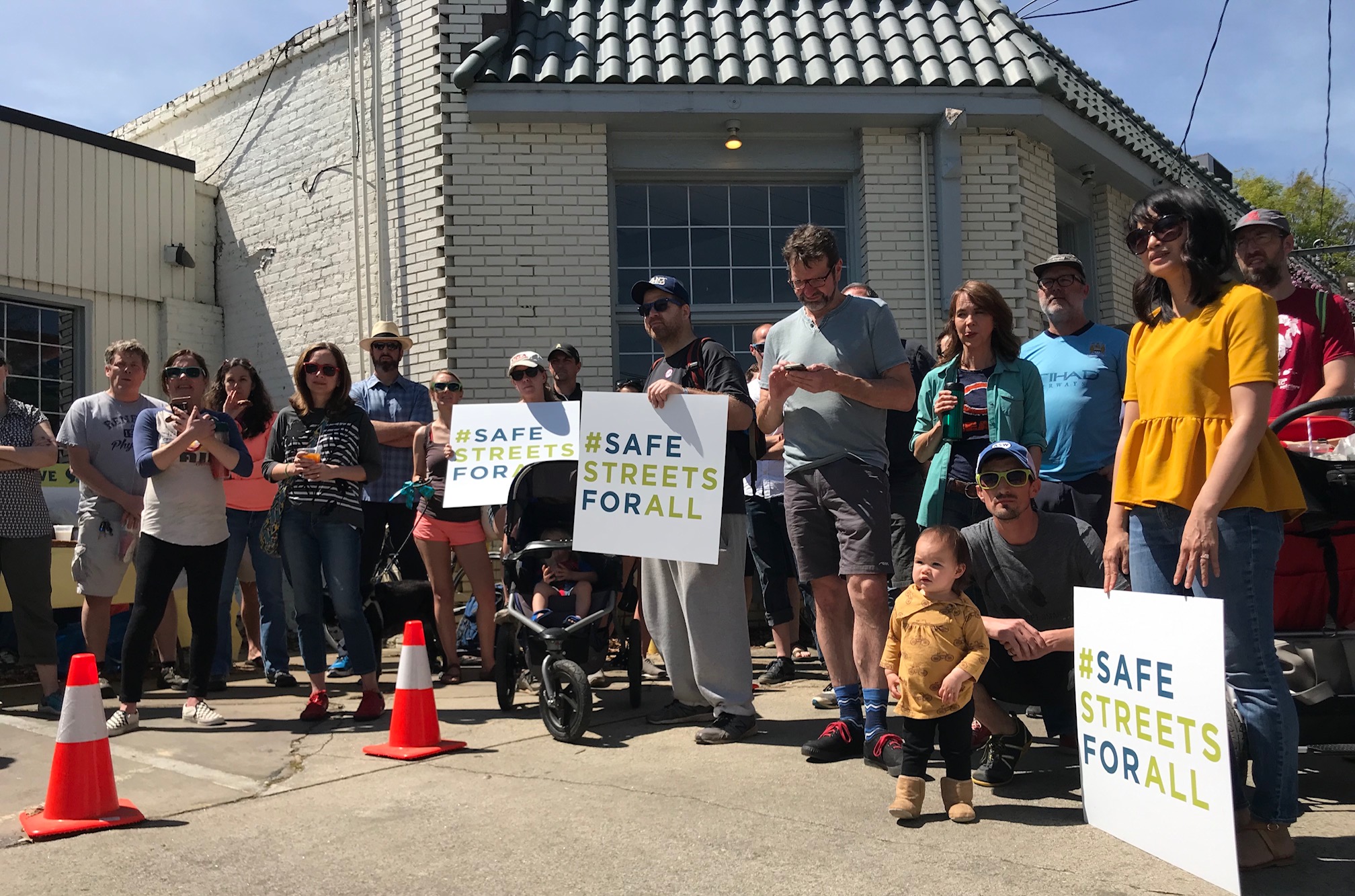
It’s time to complete dekalb avenue - saportareport
- Select a language for the TTS:
- UK English Female
- UK English Male
- US English Female
- US English Male
- Australian Female
- Australian Male
- Language selected: (auto detect) - EN
Play all audios:

By Guest Columnist STEPHANIE STUCKEY, _director of sustainability services at Southface Institute_ Public spaces create a sense of place and belonging in a city. Our streets, sidewalks, and
greenspaces – and the neighborhood shops and restaurants along the way — are what connects neighbors to each other and builds community. For too long, Atlanta’s shared spaces have been
dominated by roads designed to move vehicular traffic quickly and massive heat islands of parking lots. Cars and asphalt jungles foster isolation, not togetherness. Atlanta has a rare moment
in time to change that. In 2015 and 2016, voters approved two programs, Renew Atlanta and the 1 percent sales tax known as TSPLOST, to invest in critical road, sidewalk, bridge, and other
public works improvements. While the promised $940 million in projects has been cut by $410 million, there is still $530 million to rebuild not only the physical infrastructure of our city
but also the social infrastructure. That’s what makes a city resilient — designing our public spaces in a way that fosters human interaction and cohesive communities. The time to act is now
if we want to do things differently. DeKalb Avenue presents a great opportunity to re-think how our public domain is structured. For too long, motorists have ignored the 45 mph speed limit
and treated the road as a race track. The statistics bear this out. From 2009 to 2013, DeKalb Avenue saw almost 1,500 crashes and four fatalities — double the accident rate of other
Atlanta streets. These numbers can be greatly reduced when cars slow down and share the road. Complete DeKalb Ave Coalition is a group of bicyclists and pedestrians with a vision to reclaim
this heavily trafficked thoroughfare to create a livable community. We aim to redesign DeKalb Avenue into a connector of businesses and neighborhoods that enables users of all ages and
physical ability to safely navigate sidewalks, public transit, bike lanes and the roadway. DeKalb Avenue is unique in that it is relatively flat and easily navigable on bike, scooter, or
foot. Moreover, it links four MARTA rail stations, making it an ideal route for the critical first-mile/last-mile connectivity to transit. It is also wholly owned by the City of Atlanta
with no competing jurisdictional priorities from the state or federal government. And DeKalb Avenue connects 11 intown neighborhoods, making it an ideal test case for how streets can serve
to connect people, not just move cars. In sum, DeKalb Avenue could be a showcase for Atlanta to demonstrate what is possible when we design our roads for safety, equity and mobility, with
shared spaces for cyclists and pedestrians. After three years of public meetings and strong support from the community, the promised complete streets upgrades have been slated for “design
only.” Not for construction. However, DeKalb Avenue is still scheduled for repaving and re-striping, plus replacement of the reversible “suicide” lane with a center turn lane. City leaders
could use this as an opportunity for a pilot program to paint bike lanes along portions of DeKalb Avenue and install small-scale, inexpensive traffic calming devices (such as ballards and
parking stops) that can be tested, refined, and extended beyond the target area to meet more permanent needs. Focusing on areas like the stretch between Candler and Inman Park MARTA
Stations, where the road is wider, would promote transit use and enhance the livability of the corridor by encouraging walking, biking, and socializing at the businesses along the way, such
as Fox Brothers BBQ, A Cappella Books, and Proof Café. Way-finding signs could be erected to direct people on foot and wheels to local restaurants, businesses, transit, and the Atlanta
BeltLine.This would be a positive first step that could kick start more long-term changes, such as connection to the PATH Foundation’s bike trail at Rocky Ford Road. This Sunday, DeKalb
Avenue will temporarily close to car traffic for Atlanta Streets Alive’s cross-city event, which will highlight the longest route in the program’s history. Complete DeKalb Ave advocates are
planning placemaking activities to solicit feedback. We invite the public to stop by and share your vision of what DeKalb Avenue can and should be. In addition, the coalition hosts a
weekly Friday DeKalb Ave Commuter Ride that starts at 8:00 a.m. where the PATH meets at the bridge at Rocky Ford. Please join us to experience the vital avenue as it is and imagine how
could be. This is a unique moment in time for DeKalb Avenue. Let’s not squander it. _Note to readers: Before joining Southface, Stephanie Stuckey worked with Bloomberg Philanthropies on
their American Cities Climate Challenge; as chief resilience officer in the Atlanta mayor’s Office of Resilience; and with GreenLaw, a Georgia-based non-profit law firm that advocates for
entities harmed by pollution._ _RELATED POSTS_
